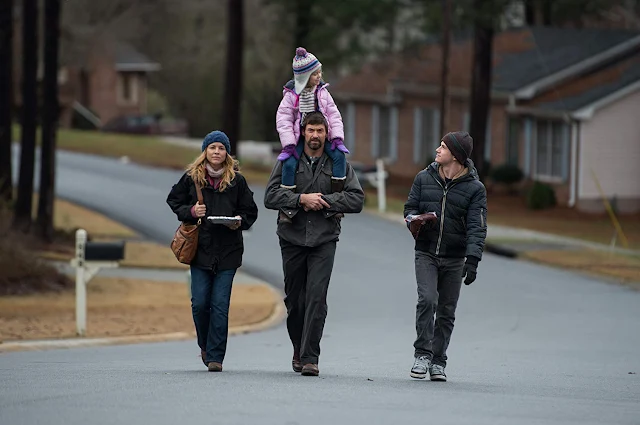 |
| Christian Bale, Melissa Leo, and Mark Wahlberg in The Fighter |
You don't have to be familiar with the real-life Micky Ward to know that the movie about him is going to end with the scrappy underdog coming from behind to win the championship. All you need is to be familiar with the genre of sports movies, especially boxing movies, to which The Fighter belongs. And you don't have to know much about the acting careers of Christian Bale and Melissa Leo to know that they were shoo-ins for the Oscars for best performances in supporting roles. All you need to know is that the Academy loves flamboyant acting in roles as working-class characters. If that sounds a little cynical, I don't really mean it that way: Bale and Leo deserved their awards, partly because they help bring a perhaps overfamiliar (not to say clichéd) story to life. The Fighter works because it's nuanced and textured in ways that films heavily shadowed by genre history have to be in order to hold our interest. And a lot of the nuance and texture was contributed by the less showy performances of Mark Wahlberg and Amy Adams -- and she at least got a nomination. It helps, too, that Wahlberg, who grew up in a Boston-area working class neighborhood much like the Lowell of the film, loved the story and its characters, and as producer made it work. You might gather from my opening that boxing movies are a genre I don't have a great fondness for, and you'd be right. But there's a lot to enjoy about The Fighter, including the ambience Wahlberg probably had a lot of say in creating, like the chorus of Micky Ward's big-haired sisters, waiting to pounce on an intruder like Charlene Fleming (Adams) who had the effrontery to go to college but return to the neighborhood and claim equality. The fight scenes are well-done, I guess, and I couldn't help getting caught up in their momentum. Still, it'll be a while before I choose to watch another boxing movie.


























